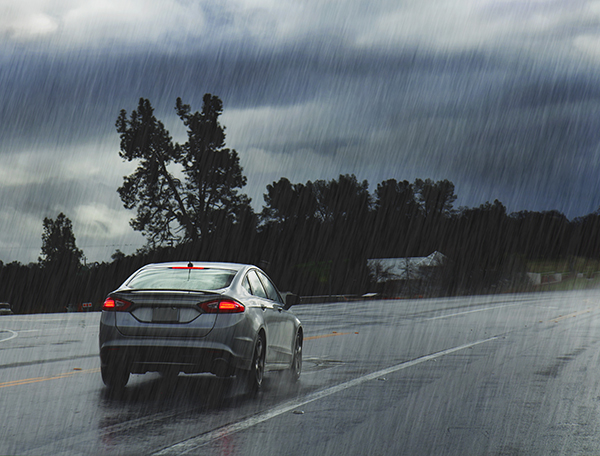
Rainy weather can pose challenges for drivers, from reduced visibility to decreased traction on slick roads. One critical aspect of driving in the rain that often goes unnoticed is its effect on your car's braking system. If you’re wondering what happens when your brakes get wet and what you can do to maintain optimal braking performance in wet conditions, keep reading.
When it rains, water accumulates on road surfaces, creating a thin film of water that can reduce tire grip and traction. As your car travels over wet roads, water can splash onto your brake components, including the brake pads and rotors. This water film can interfere with the friction between the brake pads and rotors, leading to a phenomenon known as brake fade.
Brake fade occurs when the water on the brake components prevents them from generating sufficient friction to slow down or stop the vehicle effectively. As a result, you may notice that it takes longer for your car to come to a complete stop, or that the brake pedal feels less responsive than usual. In extreme cases, prolonged exposure to wet conditions can even lead to brake failure.
Tips for Maintaining Braking Performance in the Rain:
- Keep Your Brakes Well-Maintained: Brake maintenance is crucial for optimal performance, especially in wet conditions. Ensure that your brake pads, rotors, and brake fluid are in good condition and replace worn-out components as needed.
- Drive Defensively: When driving in the rain, increase your following distance and reduce your speed to allow for longer stopping distances. Be prepared to apply the brakes gently and gradually to avoid skidding or losing control of your vehicle.
- Avoid Sudden Stops: Abrupt braking maneuvers can exacerbate brake fade and increase the risk of hydroplaning. Anticipate stops and start slowing down well in advance to give yourself ample time to come to a controlled stop.
- Use Your Lights and Signals: Ensure that your headlights, taillights, and turn signals are working properly to improve visibility for yourself and other drivers. Use your headlights in low-visibility conditions and activate your turn signals early to alert other drivers of your intentions.
- Be Mindful of Puddles: Avoid driving through deep puddles or standing water, as they can conceal potholes or debris that may damage your vehicle or cause loss of control. If you must drive through water, do so slowly and cautiously to minimize the risk of hydroplaning.
By staying vigilant and proactive about brake maintenance and safe driving practices, you can help mitigate the effects of rain on your car's stopping power and ensure a safer and more enjoyable driving experience, even in inclement weather.
Before the next rainy season arrives, schedule a comprehensive brake inspection at Quality Tune-Up Auto Care. Our skilled technicians will assess the condition of your brakes and recommend any necessary repairs or maintenance to keep you safe on the road.